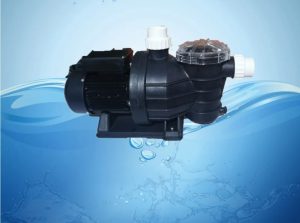8 Little Unknown Recycling Facts That Could Help Your Home Go Green

Living life in a manner that is environmentally friendly may seem time-consuming and not worth the effort, but it is. It’s surprisingly easy to make a big difference by changing your habits just a little bit. Here are 8 facts to give you ideas for some little changes you can make to go green.
1. Pay Bills Online
Reducing the paper bills you get means less paper production, which cuts back on chemicals released and trees cut for new paper production. The decision to pay bills online means fewer paper bills coming in, which means less garbage you will be sending to the landfill as well.
2. Buy Products in Bulk
Buying large amounts of a product at one time cuts down on packaging amounts. This means less plastic used, typically, which is helpful to the environment in a big way. As a rule, there are billions of pounds of plastic currently floating in the ocean. By buying in bulk you cut back on packaging which reduces further pollution to the oceans and reduces risk to marine life.
3. Regular Vehicle Maintenance Reduces Emissions
Keeping your vehicle in top working order means less pollution released into the environment. This is better for the ozone and the oxygen we breathe. It is important to schedule those maintenance visits and keep them to avoid having undiscovered issues with your vehicle that cause more pollution.
4. Reuse Scrap Paper
By reusing paper and making sure to write on both sides, you can cut down on the impact on the environment and the number of trees cut to produce paper. It is also wise to print on both sides of printer paper whenever possible. Opt for a printer that does this as a regular feature when you buy a new one.
5. Fix Leaky Faucets
Water is a valuable resource, and the chance to fix the faucets within the home means you cut down on the cost in areas where you are paying for water use. It also means you can reduce the water usage and waste, which is beneficial to the environment.
6. Stop Rinsing Dishes Before Putting Them in the Dishwasher
A significant amount of water is wasted when you rinse your dirty dishes before placing them in the dishwasher. Meanwhile, the dishwasher will get them clean, provided they are simply loaded in and washed in a timely fashion. Save the water, and skip the extra step. You can use the time in other ways as well.
7. Change the Light Bulbs in Your Home
One light bulb changed to a fluorescent can seriously cut energy usage. Changing every light bulb in your home can decrease your energy use exponentially. That means less money spent and a smaller footprint on the environment, which will benefit future generations in a big way.
8. Bring Your Own Bags to the Grocery Store
Americans use an average of 185 pounds of plastic each year – that’s per person. The plastic grocery bags are used for an average of 12 minutes, and they take 500 years to degrade afterward. That is a lot of garbage to float into our oceans or take up space in our landfills for more than five times our lifetime.
Instead, invest in full color printed bags and reuse them for every trip to the grocery store.






